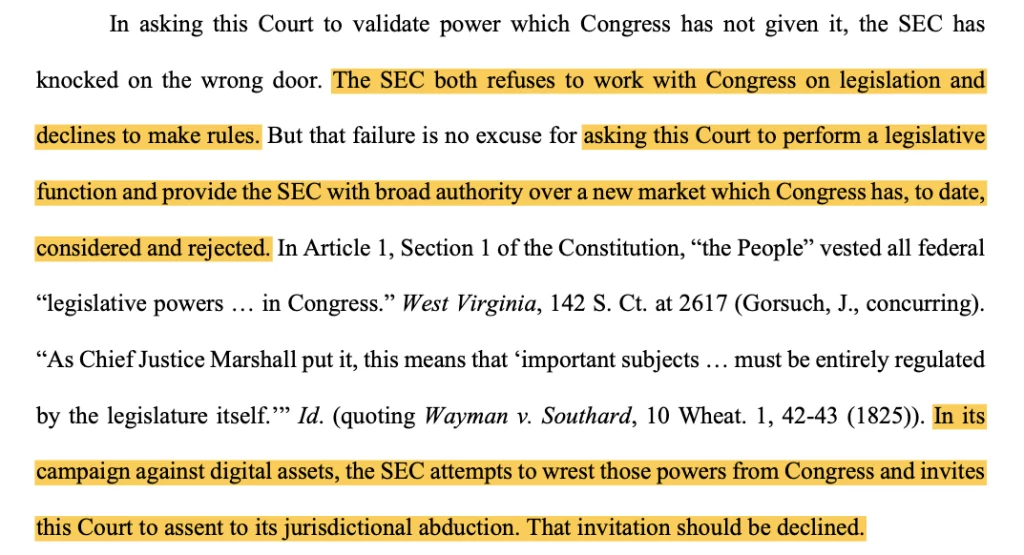Two individuals who have been accused of orchestrating an $18 million fraudulent cryptocurrency mining scheme are now seeking the dismissal of the lawsuit against them. They argue in court that the United States securities regulator lacks the jurisdiction to oversee cryptocurrency.
On May 19, Wright Thurston and Kristoffer Krohn separately filed motions to have a lawsuit from the Securities and Exchange Commission (SEC) dismissed. The SEC had sued them, along with the alleged cryptocurrency mining and development company Green United LLC, in March.
The lawsuit accuses them of engaging in fraudulent activities by offering securities through the sale of “Green Boxes” and “Green nodes.” These products were marketed as miners for the GREEN token on the “Green Blockchain.”
Thurston and Krohn, who founded the company and were involved in its promotional activities under contract, argued in their motion for dismissal that the SEC does not possess the necessary authority to regulate the digital asset ecosystem. They further claimed that Congress had already deliberated on the matter and had rejected the SEC’s authority over cryptocurrency.

Furthermore, they pointed out that the Securities and Exchange Commission (SEC) has displayed a lack of clarity and consistency in defining cryptocurrencies. They also echoed the recent suggestions that the regulator was engaging in a practice known as “regulation by enforcement.”
“The SEC has instead abandoned any effort at proposed legislation or rulemaking, opting instead to attempt to litigate its way to a coherent regulatory scheme.”
In their additional arguments seeking dismissal of the case, Thurston and Krohn contended that the Securities and Exchange Commission (SEC) had failed to provide sufficient evidence to support their claim that the Green Boxes constituted securities offerings or “investment contracts,” as stated in the SEC’s March complaint.
In its March suit, the SEC claimed that the hardware sold by Green United was actually Bitcoin
BTC $27,339 mining rigs that didn’t mine GREEN as advertised, and the purported blockchain never existed.
The alleged scheme raised around $18 million, according to the regulator, and investors “did not receive” any of the BTC mined by Green United.
SEC Chair Gary Gensler has long asserted the Commission’s authority over crypto and has said most crypto assets sans Bitcoin are securities under the Howey test.

